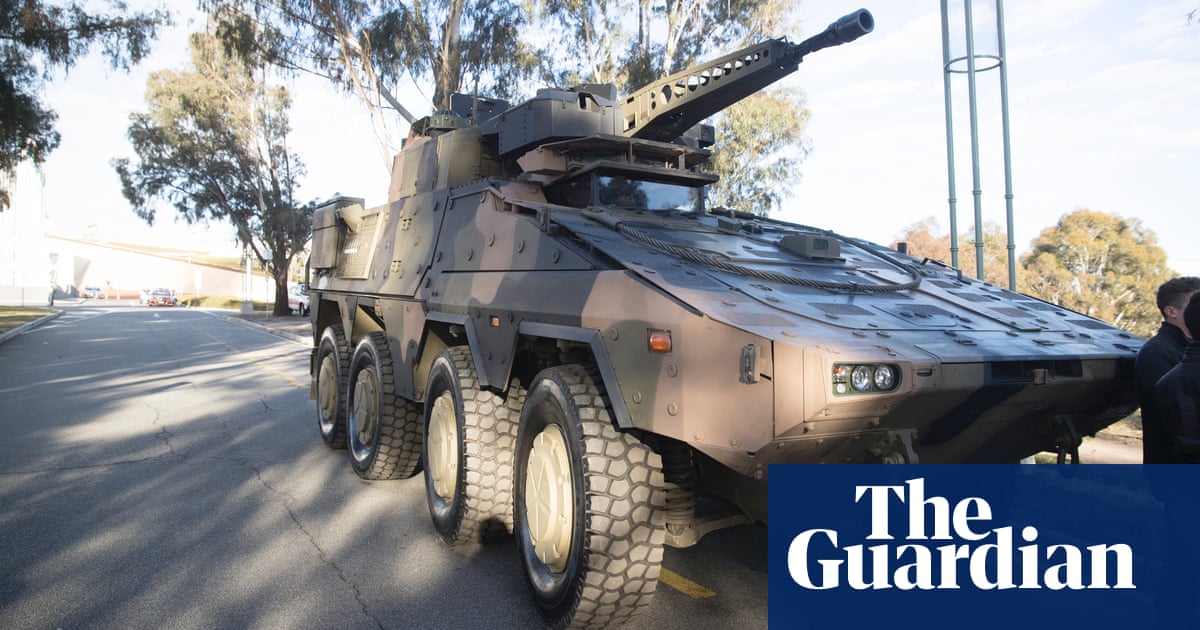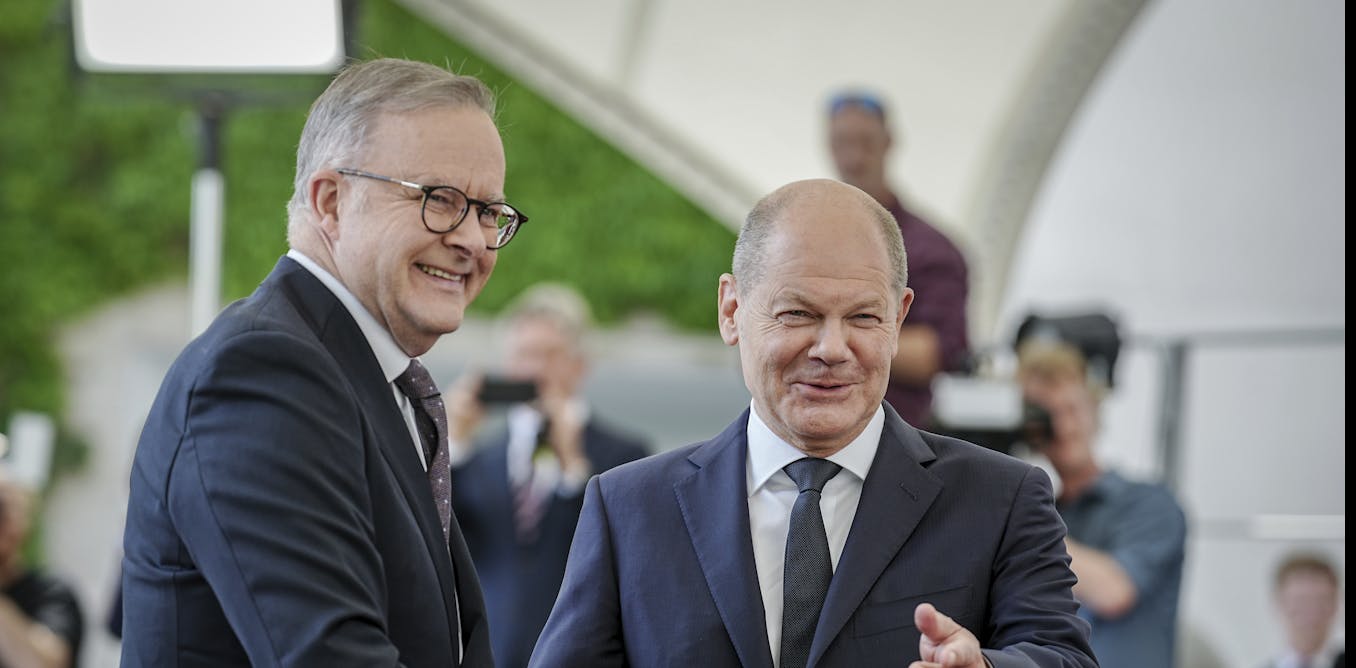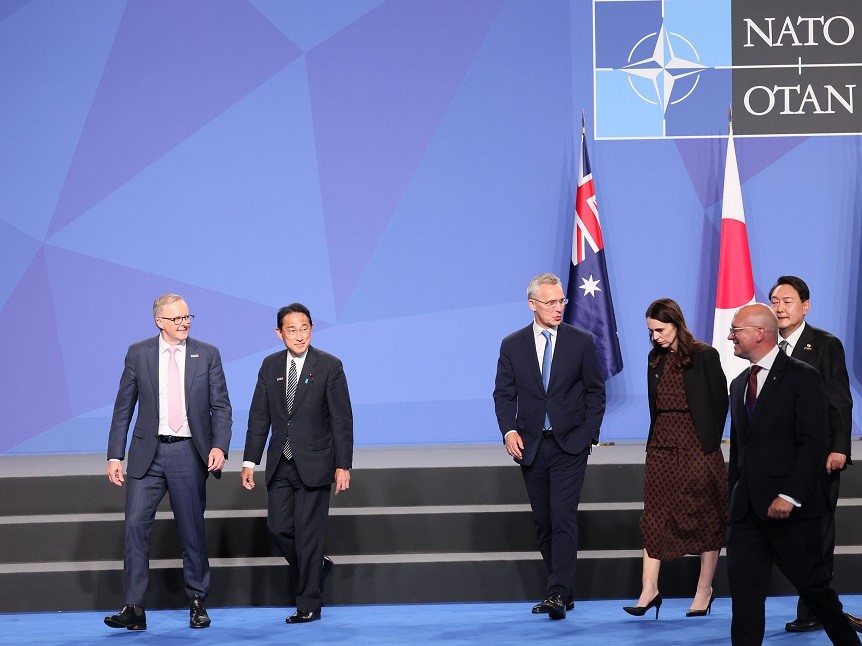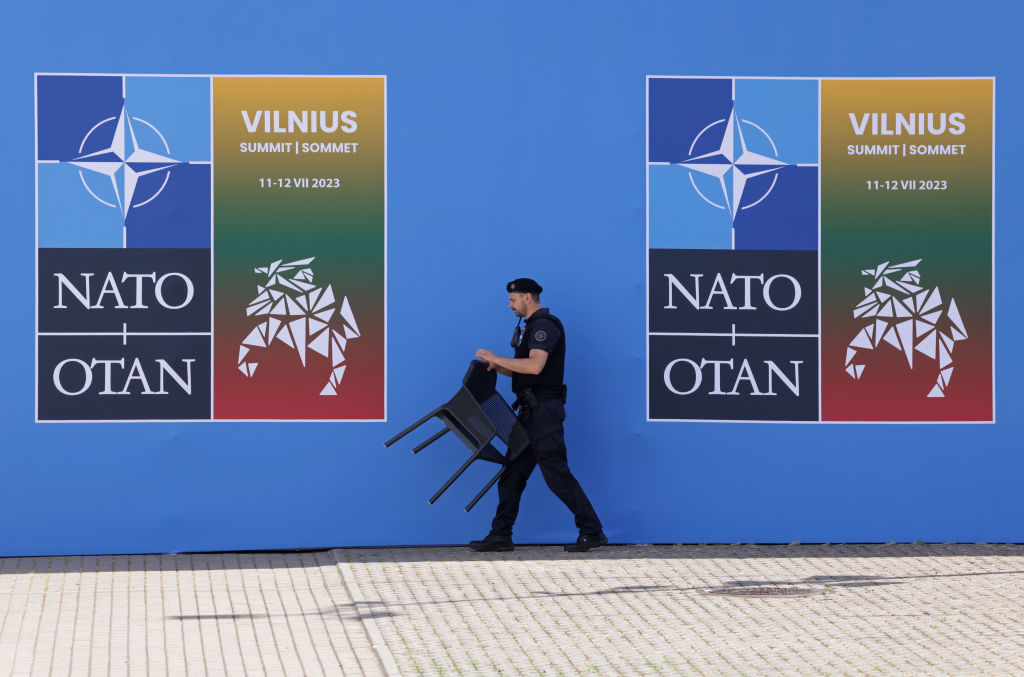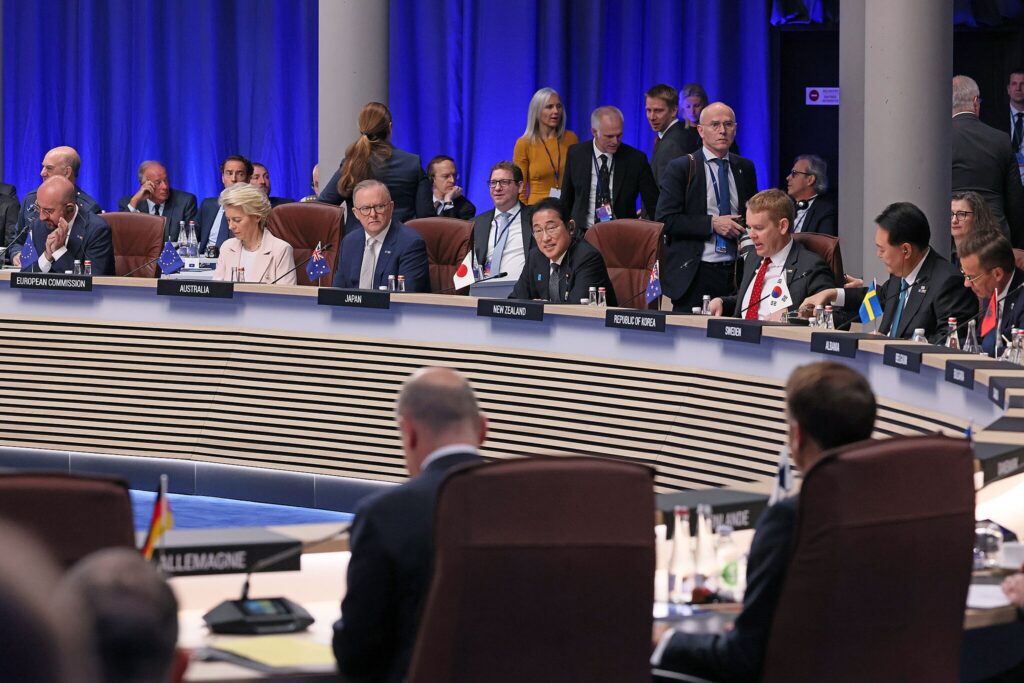
by Sophia Brook
‘Advancing Australia’s Interests with Germany and NATO’…
#7/23
18 July 2023
…Was the title of Prime Minister Anthony Albanese’s pre-travel media release for his recent Europe visit. It listed two main agenda items: meeting with German Chancellor Olaf Scholz to ‘discuss deepening cooperation between Australia and Germany in a range of areas including trade and investment, the clean energy transition, and defence’ and advocating for this ‘region’s strategic priorities and [advancing] Australia’s security, economic and trade agenda’ at the NATO Leaders’ Summit. In addition, Albanese used the occasion to push for greater efforts to overcome the current obstacles to the successful conclusion of an EU-Australia FTA.
It was a busy few days for Albanese, who began his Europe trip with his first official visit to Germany on 10 July before joining fellow IP4 partners New Zealand, Japan and the Republic of Korea at the NATO summit in Vilnius on 11-12 July. Overall, it turned out to be quite a positive visit for the Australian PM.
In Germany, he and Chancellor Scholz announced that the two countries were planning to work together even more closely in areas concerning ‘economic security, diversification and resilient supply chains’ and on resolving the current stalemate of the EU-Australia FTA negotiations. Albanese further stated that Australia had officially joined the ‘Climate Club’, an initiative formed by the German Chancellor in 2022, with the aim to decarbonise industry and reach net zero emissions by 2050. Other members of the Climate Club currently are the USA, the UK, Canada, France and Italy.
Apart from trade and climate action, another big subject of the bilateral meetings in Germany was defence, both in a bilateral context as well as in relation to Russia’s war in Ukraine. Having discussed armament, Albanese and Scholz confirmed a $1bn (AUD) deal for Germany to buy 100 Boxer Heavy Weapon Carriers from Australia, the majority of which will be built in Queensland, at the Rheinmetall Centre of Excellence, with a small remainder to be built in Germany. Deliveries are scheduled to start in 2025. For Germany this means buying vehicles from a German manufacturer rather than from the US. For Australia, the deal promises to create jobs, although some experts warn that one of the short-term effects might be that it will delay deliveries to the ADF.
Labelled as ‘one of the biggest defence sales in Australia’s history’, the agreement can be seen as yet another step up in German-Australian defence cooperation. In recent years, we have witnessed increased German interest and engagement in the Pacific region and Australia is considered a significant partner in Germany’s Pacific strategy. Since the rather symbolic first visit of a German frigate to the region in 2021, there has been increased German participation in joint defence exercises. After having sent a contingent of 13 aircraft to participate in Operations Pitch Black and Kakadu in 2022, this month, up to 240 German soldiers will be joining the Australia-US-led Talisman Sabre exercise.
Another defence-related announcement made during Albanese’s Germany visit concerned the conflict in Ukraine. Australia committed to making a contribution to air surveillance by deploying an E7-A Wedgetail Air Force jet, including 100 crew and support personnel, from Germany’s Ramstein base for the duration of six months starting in October 2023.
From Germany Albanese travelled to Vilnius, where he was expected to confirm Australia’s continued commitment to a rules-based international order and ‘urge the United States and China to manage their increasingly tense competition responsibly’, warning that ‘great-power rivalry in Australia’s region needs diplomatic mechanisms to avoid spiralling into conflict’.
He held one-on-one meetings with NATO’s Secretary-General Jens Stoltenberg and the leaders of France, Great Britain, Lithuania, Portugal and Denmark, among others, as well as a series of informal meetings with other European leaders.
Stoltenberg stressed that NATO’s relationship with Australia was ‘a partnership we really value’ and thanked the PM for Australia’s ongoing support for Ukraine. At the same time, he assured Albanese that ‘what happens in the Indo-Pacific matters for Europe, for NATO’ as ‘security is not regional, security is global’. This message would have been welcomed by Albanese as confirmation that NATO has taken on board Australia’s message of the significance of Indo-Pacific developments to European interests.
A big item on the agenda for the European meetings were the EU-Australia FTA negotiations, with the recent round of talks once again stalled by disagreements over the volume of agricultural products Australia would be allowed to export and geographical indications of products (GIs). In his meeting with President Macron, Albanese made it clear that although Australia was very much interested in successfully concluding the FTA, it would not ‘sign up to a deal for the sake of it’. It is safe to say that the EU does not intend to do that either, especially when it comes to GIs.
The PM also caught up with US President Biden, US Congress representatives and Senators, reaffirming the importance of AUKUS and reiterating Australia’s need for the support for the US legislation required to allow Australia to work within the AUKUS framework. The announcement on the weekend that the US Senate Foreign Relations Committee is backing an amendment in legislation that will grant Australia a 20-year exemption from the otherwise strict export rules, appears to imply that the meetings went well.
In press conferences and doorstep interviews during the summit, Albanese stated that the NATO summit was ‘an important forum for Australia to be represented’ and that, due to the interconnectedness of the world, ‘Australia must be engaged and have a seat at the table’. He further concluded that ‘attending a conference like this gives a real opportunity to advance Australia’s interests because of who is present’ and he appears to have used his opportunity to spruik Australia’s interests.




